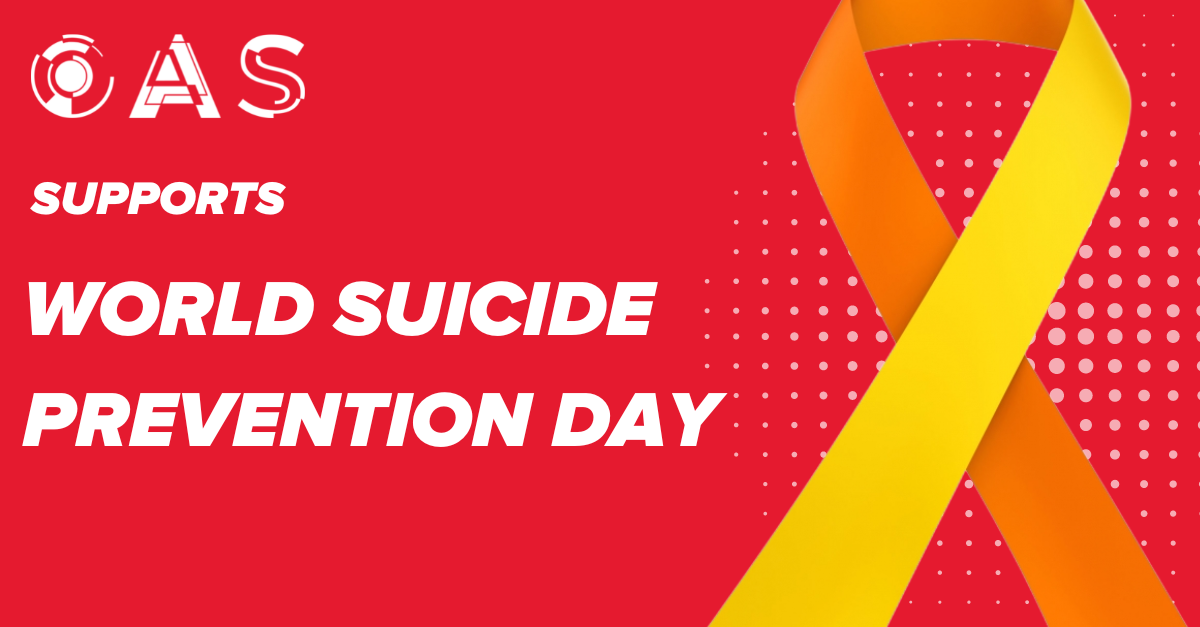World Suicide Prevention Day

What is World Suicide Prevention Day?
World Suicide Prevention Day (WSPD) was established in 2003 by the International Association for Suicide Prevention (IASP) and the World Health Organisation (WHO). It aims to reach national organisations, governments and the general public with the message that suicide can be prevented.
Today, WSPD is observed in more than 60 countries. It’s an opportunity to raise awareness about suicide, and to promote action through proven means that will reduce the number of suicides and suicide attempts globally.
2022 is the last in a three-year theme of ‘Creating Hope Through Action’, with this year’s in-theme focus, “Be the Light”, highlighting that preventing suicide requires us to become a beacon of light to those in pain.
Why is World Suicide Prevention Day important?
Suicide can affect every one of us. IASP tells us than more than one in every 100 deaths worldwide are the result of suicide, with an estimated 703,000 people dying by suicide worldwide each year. Suicide is consistently among the top 20 causes of death globally across all age groups, but over half (58%) of all deaths by suicide occur before the age of 50 years old, and the global suicide rate is over twice as high among men than women. Significantly for OAS, industries which still have a higher proportion of male employees, such manufacturing and engineering, typically have suicide rates well-above their country’s national averages.
Creating Hope Through Action reminds us that there is an alternative to suicide. The theme aims to inspire confidence and light in all of us, and to appreciate that our actions, no matter how big or small, may provide hope to those who are struggling.
IASP explains how to create hope through action:
- Reach In: Showing that you care can help to give someone hope. Small talk can save lives and create a sense of connection and hope in somebody who may be struggling. You don’t have to have advice or solutions – simply making the time and space to listen to someone about their experiences of distress or suicidal thoughts can help.
- Encourage Understanding: Stigma is a major barrier to help seeking Changing the narrative around suicide through the promotion of hope can create a more compassionate society where those in need feel more comfortable in coming forward to seek help.
- Share Experiences: The insights and stories of people with a lived experience of suicide can be extremely powerful in helping others understand suicide better and encourage people to reach in to support someone, and for individuals to reach out for help themselves. It’s really important that the person sharing their story knows how to do so in a way that is safe for them and for those who hear their story.
Our actions can make a difference to someone in their darkest moments, and we can all play a role in supporting those experiencing a suicidal crisis or those bereaved by suicide. You can find out more about how to create hope through action here.
What are we doing for World Suicide Prevention Day at OAS?
Throughout the day, we’ll be sharing WSPD resources on our social media channels, and signposting help for anyone that needs it. At 8pm, our team will be lighting candles near their windows, joining thousands of others across the world as they show their support for suicide prevention, and remember lost loved ones as well as survivors of suicide.
More generally, supporting mental health, including suicide prevention, is part of our commitment to welcoming all forms of diversity at OAS, and ensuring that everyone is supported to fulfil their potential on a daily basis:
- Our Wellbeing Champions are fully trained Mental Health First Aiders, and are always on hand to provide confidential one-to-one support to our learners and colleagues. They also hold Wellbeing Coffee Catch-Ups, where anyone can drop-in and check-in to discuss that week’s theme and general well-being topics, as well as talking about how they are feeling.
- Our Occupational Health Advisor is available to support any wellbeing queries, including suicide concerns, and we have a centrally published list of mental health resources within our Information Advice and Guidance packs for any learners and colleagues who prefer to seek external help independently.
- Our Safeguarding Team is always available to assist learners’ wellbeing, and we offer personal mentors to learners who may be struggling with challenges including suicidal feelings during their learning journey.
- For our colleagues, our Employee Assistance Programme (EAP) offers 24/7 access to a comprehensive resource library of audio blogs, articles, toolkits and vlogs around lots of different topics, as well as a telephone counselling service.
Getting support
If you or someone you know are having suicidal thoughts or feelings, you don’t need to struggle alone. IASP’s Find a Helpline service helps you to access free, confidential support from a real person over phone, text or online chat, wherever you are in the world.
If you’re in the UK, Mind’s directory of helplines and listening services can help you access information or support whenever you need it. Many are available across different times of the day, and provide a confidential, judgement-free service. Mind also have lots of advice for anyone experiencing suicidal feelings here, including different types of support and ways to get help.